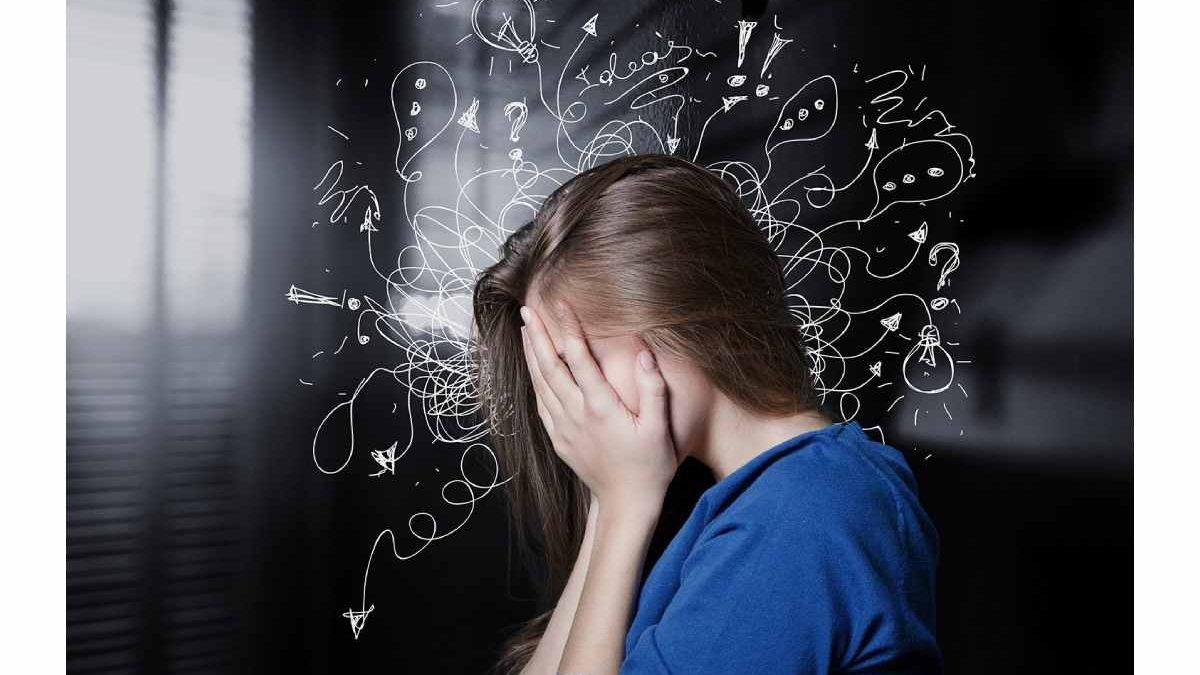Can Stress And Anxiety Cause Chest Pain? – The doctors on Live explain the link between mental health and chest pain and the solutions to relieve it.
Chest pain can have many causes, and it’s not just a heart problem. How do you recognize anxiety-related chest pain, and how do you react? The doctors on Live explain the link between mental health and chest pain and the solutions to relieve it.
Table of Contents
What Are The Symptoms Of Anxiety?
It is widespread to suffer from stress or anxiety; many people can experience this feeling at some point in their lives. But for some, pressure can lead to more than feelings of fear and worry and cause physical symptoms, such as chest pain.
It’s not always easy to distinguish between chest pain related to stress or anxiety and pain from a heart attack or angina. Everyone experiences anxiety differently, and there is a wide range of psychological and physical symptoms you may experience.
The psychological symptoms of anxiety can be:
- Anxiety attacks ;
- Nervousness;
- Random and uncontrollable thoughts;
- Trouble concentrating;
- Tiredness;
- Irritability;
Physical symptoms of anxiety can include:
- Sleep disturbances ;
- Tremors;
- Excessive sweating or hot flashes;
- Rapid heartbeat, palpitations ;
- Chest pain or tightness;
- Sensation d’etouffement ;
- Feeling dizzy or dizzy;
- Shortness of breath;
- A dry mouth;
- Stomach aches;
- A feeling of discomfort.
Can Stress And Anxiety Cause Chest Pain?
Anxiety is a normal reaction of our brain to real or imagined danger. In case of worry or stress, the body triggers the “fight-flight” reflex: an automatic response that prepares us to face or flee danger.
The “fight-flight” response releases stress hormones, such as adrenaline: blood pressure rises, heart rate quickens, and breathing becomes rapid and shallow.
Since the heart is a muscle, the muscle tension caused by this pulse acceleration can cause palpitations, spasms and chest pain. The lack of oxygen and rapid heart rate can cause other symptoms, such as dizziness and shortness of breath.
How To Recognize Chest Pain Due To Stress Or Anxiety?
Symptoms of anxiety can vary from person to person. However, there are different criteria for recognizing anxiety-related chest pain.
You may feel:
- Sharp or stabbing pain localized in the chest;
- Tightness or burning sensation;
- Dull pain;
- Contractions in the chest.
Anxiety can sometimes escalate in some people and turn into a full-blown panic attack, causing intense chest hurt and emotional distress.
In general, anxiety-related chest pain appears and disappears relatively quickly: they last about ten minutes. You may also feel aches from muscle contractions.
What Is The Difference Between Anxiety-Induced Chest Pain And A Heart Attack?
Chest pains from heart attacks differ from those caused by anxiety in that they get worse with movement and last longer (at least 20 minutes).
Chest hurt after a heart attack often feels like a choking sensation and intense pressure on the chest. It can spread to extra body parts, such as the arms, shoulders, back, and jaw. You may also experience sweating, nausea, coughing, or wheezing.
If you suddenly have chest hurt and are afraid that your chest hurt is severe, do not hesitate to consult a doctor quickly.
How To Calm Anxious Chest Pain?
So treatment for chest hurt will primarily depend on what is causing it. In case of chest hurt caused by anxiety, there are many simple methods to put in place to relax and make the fear go away.
1. Breathing Exercises
Get into slow, deep breathing, or try a specific breathing exercise, like diaphragmatic breathing. Deep breathing can help reduce your stress, slow your heart rate, and control a panic attack before it gets worse.
2. Relaxation Techniques
Techniques like meditation or visualization can also help calm you down by slowing down anxious thoughts and relaxing the brain and body.
3. Sports Activity
Lifestyle changes also have to help manage anxiety. Regular exercise can reduce muscle tension and release chemicals like serotonin and endorphins, known to soothe stress and anxiety.
4. Quality Sleep
Good-quality sleep can also help reduce anxiety symptoms: try to have a regular bedtime routine and get 7-9 hours of sleep a night. Doctors on Live also recommend cutting down on caffeine and alcohol intake, which can increase anxiety if overindulged.
When To Consult For Chest Pain?
In the event of sudden, intense pain, tightness in the chest lasting more than 5 minutes and not yielding to rest, it is advisable to call the emergency medical service as soon as possible by dialing 15 or 112 on a telephone. Mobile. Outside of this emergency, if you experience chest hurt, it is essential to tell your GP, or if not available, a doctor on Live, especially if it recurs and interferes with your daily life. The doctor will take a history of your symptoms and may perform a few simple tests such as a blood test or an electrocardiogram (ECG) to rule out any risk of heart disease.
But if your anxiety becomes too much to handle, treatments can help. A general practitioner can refer you to a mental health specialist for appropriate care. Talk therapy, cognitive-behavioral therapy (CBT), or drug treatment: solutions exist to help you manage anxiety symptoms daily.

